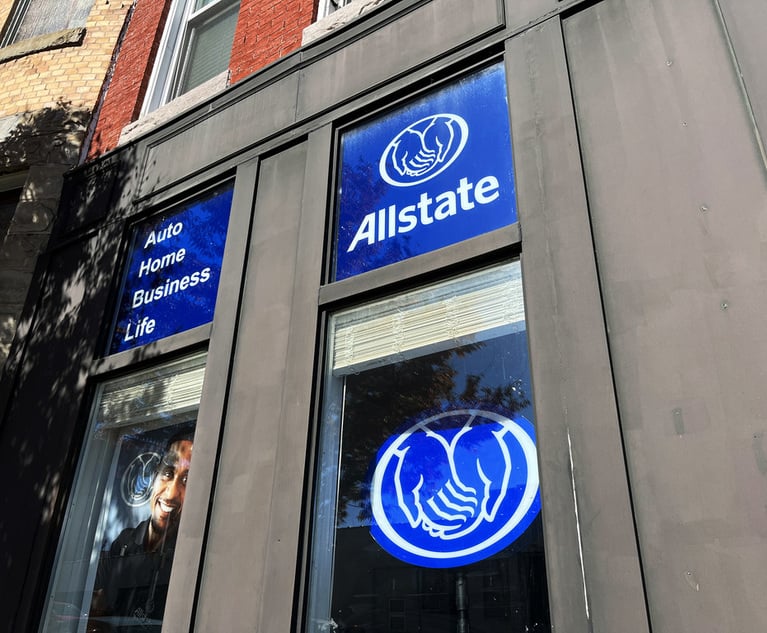Appeals Court Approves Sanctions Against Texas Attorneys Who Allegedly Hid Settlement Agreement
The dispute centers on a wrongful death action involving Samuel Morales Castillo, who was killed allegedly in a roadside accident caused by an FE Express truck driver.
March 22, 2018 at 06:25 PM
6 minute read

San Antonio's Fourth Court of Appeals has upheld sanctions against several South Texas attorneys for acting “intentionally and unethically” in attempting to avoid the jurisdiction of a Laredo state district court by filing an identical pleading in another jurisdiction where they eventually settled their case.
The dispute centers on a wrongful death action involving Samuel Morales Castillo, who was killed allegedly in a roadside accident caused by an FE Express truck driver.
Castillo's girlfriend, Maria Isabel Serna Contreras, retained Laredo attorney Ronald Rodriguez and filed a wrongful death action in a Webb County district court in Laredo on behalf of the two children she had with Castillo.
Castillo's wife, Paulina Navarro, retained three attorneys from the Corpus Christi law firm Liles Harris (now Liles White) who also filed a wrongful death case on behalf of their two children in Laredo. The two Laredo cases were consolidated at the request of two lawyers from Houston's Daw & Ray who were defending FE Express.
Attorneys for both Navarro and Contreras sent demand letters to the FE Express attorneys seeking the full limits of the trucking company's $1 million accident insurance policy.
The Liles lawyers later filed an identical wrongful death case in a Nueces County state district court in Corpus Christi. They also served FE Express' lawyers at Daw & Ray with a notice of a “friendly suit hearing” in Corpus Christi but did not notify Contreras' attorney of that case. The Liles lawyers later filed a notice of nonsuit in the Laredo court but did not mention the friendly suit they had pending in Corpus Christi. The Liles attorneys and Daw & Ray lawyers ultimately filed amended responses in the Laredo litigation announcing they had reached a $700,000 settlement agreement.
After Contreras received a copy of the settlement agreement, her attorney filed a motion for sanctions against the Liles lawyers and FE Express' attorneys, alleging they abused the discovery process by failing to produce a copy of their settlement agreement and engaged in conduct that affected the Laredo court's core functions to resolve the dispute.
The Liles lawyers responded by filing their own sanction motion against Contreras' attorney, alleging his sanctions motion was groundless and brought in bad faith.
The Laredo court dismissed the sanctions motion brought by the Liles lawyers. But it found the Liles attorneys had filed a nonsuit for an improper purpose, that FE Express' attorneys abused the discovery process by not producing the settlement agreement, and that both Liles attorneys and FE Express' lawyers had “conspired to intentionally and unethically avoid and interfere” with the Laredo court's jurisdiction.
The Laredo court ultimately sanctioned Liles Harris attorneys Kevin W. Liles, Brian K. Harris, and Stuart R. White for $50,000 and ordered them to pay Contreras' legal fees. The court also sanctioned FE Express attorneys James L. Ray and Kyle D. Giacco of Daw & Ray $25,000 and also ordered them to pay Contreras' legal fees. Lawyers from both firms appealed that decision to the Fourth Court of Appeals.
In its decision, the Fourth Court found that the trial court did not abuse its discretion by sanctioning the attorneys in the case. It noted that in a sanctions hearing, the Liles attorneys admitted they pursued the action in Nueces County “to avoid Rodriguez—counsel for Contreras—and any effort he might make to disrupt the settlement.” The attorneys also argued that Contreras had no authority or right to stop or interfere with their settlement even if it exhausted the insurance proceeds.
“The attorneys' decision to file suit in Nueces County to avoid Contreras' counsel suggests a belief by the attorneys that not only would her counsel lodge objections to any settlement that awarded the Navarro minors more than half of the available settlement funds, but those objections might have found favor with the Webb County trial court given its duty to protect all of the minors under its jurisdiction, thereby impairing any settlement agreement between Liles's clients and [Daw & Ray's] clients,” wrote Justice Marialyn Barnard.
“Thus, we hold the Webb County trial court could have concluded, in its discretion, complicity by the attorneys to keep the court in the dark regarding their settlement actions, thereby unilaterally divesting the trial court of its jurisdiction over the ability to protect all the minors under its authority,” Barnard wrote, affirming the trial court's sanctions in the case.
Rodriguez said he was pleased with the decision upholding the sanctions against his opposing counsel in the case.
“The Texas civil justice system sent a loud and clear message that lawyers who interfere with the exercise of its jurisdiction in the administration of justice and who violate the rule of law will not be tolerated,” he said. “I am honored to have contributed in protecting the rule of law, the judicial system and the people who we are entrusted to serve.''
Ryan Anderson, a San Antonio attorney who represents Liles, Harris and White, said his clients strongly disagreed with the Fourth Court's decision and are weighing their options, noting that the court concluded that his clients complied with Texas law but the trial court sanctioned them anyway.
“My clients intend to challenge the idea that an attorney can be sanctioned when his or her actions comply with well-settled Texas law, particularly where their actions resolve their clients' case in the most efficient manner available and in their respective clients' best interests,” Anderson said.
“The court of appeals' decision imposes a duty on attorneys not only to inform adverse parties of their strategy for resolving their clients' claims, but also to consider and treat competing claims to a fixed sum of money on the same level as their own clients, which is in direct contravention of the Texas Supreme Court's Soriano opinion,” Anderson said. “My clients, as experienced, well-respected attorneys, find it difficult to believe that the Texas Supreme Court would recognize such a duty.”
Mike Choyke, a Houston attorney who represents Ray and Giacco, did not return a call for comment. Ray and Giacco also did not return calls for comment.
This content has been archived. It is available through our partners, LexisNexis® and Bloomberg Law.
To view this content, please continue to their sites.
Not a Lexis Subscriber?
Subscribe Now
Not a Bloomberg Law Subscriber?
Subscribe Now
NOT FOR REPRINT
© 2025 ALM Global, LLC, All Rights Reserved. Request academic re-use from www.copyright.com. All other uses, submit a request to [email protected]. For more information visit Asset & Logo Licensing.
You Might Like
View All
Supreme Court Appears Sympathetic to Law Requiring Porn Sites to Verify Users' Age

Read the Document: DOJ Releases Ex-Special Counsel's Report Explaining Trump Prosecutions
3 minute read
Houston Trial Lawyer Mary-Olga Lovett Leaves King & Spalding to Open Boutique
3 minute read
Allstate Is Using Cell Phone Data to Raise Prices, Attorney General Claims
5 minute readTrending Stories
- 1Big Law Begins 2025 With Boston Laterals and Deals
- 2Vinson & Elkins Expands Environmental Team with Chair of Texas Commission on Environmental Quality
- 3From Courtrooms to Conversations: The Unexpected Joys of Podcasting as a Lawyer
- 4'A More Nuanced Issue': NJ Supreme Court Considers Appellate Rules for Personal Injury Judgments
- 5Drake Sues UMG for Defamation Over Promotion of False Claims of Pedophilia
Who Got The Work
J. Brugh Lower of Gibbons has entered an appearance for industrial equipment supplier Devco Corporation in a pending trademark infringement lawsuit. The suit, accusing the defendant of selling knock-off Graco products, was filed Dec. 18 in New Jersey District Court by Rivkin Radler on behalf of Graco Inc. and Graco Minnesota. The case, assigned to U.S. District Judge Zahid N. Quraishi, is 3:24-cv-11294, Graco Inc. et al v. Devco Corporation.
Who Got The Work
Rebecca Maller-Stein and Kent A. Yalowitz of Arnold & Porter Kaye Scholer have entered their appearances for Hanaco Venture Capital and its executives, Lior Prosor and David Frankel, in a pending securities lawsuit. The action, filed on Dec. 24 in New York Southern District Court by Zell, Aron & Co. on behalf of Goldeneye Advisors, accuses the defendants of negligently and fraudulently managing the plaintiff's $1 million investment. The case, assigned to U.S. District Judge Vernon S. Broderick, is 1:24-cv-09918, Goldeneye Advisors, LLC v. Hanaco Venture Capital, Ltd. et al.
Who Got The Work
Attorneys from A&O Shearman has stepped in as defense counsel for Toronto-Dominion Bank and other defendants in a pending securities class action. The suit, filed Dec. 11 in New York Southern District Court by Bleichmar Fonti & Auld, accuses the defendants of concealing the bank's 'pervasive' deficiencies in regards to its compliance with the Bank Secrecy Act and the quality of its anti-money laundering controls. The case, assigned to U.S. District Judge Arun Subramanian, is 1:24-cv-09445, Gonzalez v. The Toronto-Dominion Bank et al.
Who Got The Work
Crown Castle International, a Pennsylvania company providing shared communications infrastructure, has turned to Luke D. Wolf of Gordon Rees Scully Mansukhani to fend off a pending breach-of-contract lawsuit. The court action, filed Nov. 25 in Michigan Eastern District Court by Hooper Hathaway PC on behalf of The Town Residences LLC, accuses Crown Castle of failing to transfer approximately $30,000 in utility payments from T-Mobile in breach of a roof-top lease and assignment agreement. The case, assigned to U.S. District Judge Susan K. Declercq, is 2:24-cv-13131, The Town Residences LLC v. T-Mobile US, Inc. et al.
Who Got The Work
Wilfred P. Coronato and Daniel M. Schwartz of McCarter & English have stepped in as defense counsel to Electrolux Home Products Inc. in a pending product liability lawsuit. The court action, filed Nov. 26 in New York Eastern District Court by Poulos Lopiccolo PC and Nagel Rice LLP on behalf of David Stern, alleges that the defendant's refrigerators’ drawers and shelving repeatedly break and fall apart within months after purchase. The case, assigned to U.S. District Judge Joan M. Azrack, is 2:24-cv-08204, Stern v. Electrolux Home Products, Inc.
Featured Firms
Law Offices of Gary Martin Hays & Associates, P.C.
(470) 294-1674
Law Offices of Mark E. Salomone
(857) 444-6468
Smith & Hassler
(713) 739-1250






